Agricultural history teachers and students went to gannan to investigate the ancient village ecology and the red revolution sites
Author:Source:bevictor伟德官网英文版 Time:2020-05-28Click:13
Return
Located at the junction of fujian, guangdong and jiangxi provinces, xunwucounty is an important settlement of hakka people and an old revolutionary base area. From June 21 to 23, at the invitation of guoyingrong, director of jiangxi provincial forestry ecological engineering construction and management center, professor wangfuchang of our institute went to zhoutian village, chengjiang town,chouwu county, congkeng village, xiangshan village, and luofuzhang, fuzhong village to carry out research activities on ancient villages and red revolutionary sites.On the morning of 22nd, we drove to zhoutian village, the first batch of historical and cultural famous villages in jiangxi province, the seventh batch of nationalhistorical and cultural famous villages, and the national ecologicaland cultural village, together with guo yingrong, director of jiangxiprovincial forestry department, and huang jingyi, deputy director of ganzhou forestry bureau. In the meeting room of the village committee, professor wang gave a lecture on "small villages, bigstories: zhou tian's ramble on ecological culture". The contentof the lecture is from four aspects: the gift of nature and the"culture" of zhoutian people, the extensive and profound Chinese ecological culture and the inheritance of zhoutian people,the great reform and opening up and the new model of zhoutianecological culture, problems and prospects. The lecture was rich incontent, detailed and accurate in materials and data, and the reportwas vivid and down to earth. After the presentation, professor wang had extensive and in-depth exchanges with the participants.
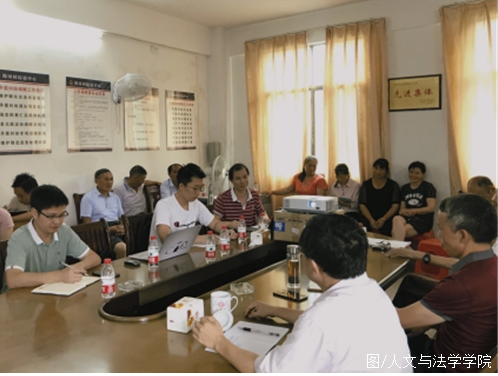
Professorwang is giving a lecture in zhoutian village
After the meeting, the research team and director guo, deputy director huang and other leaders visited zhoutian village's ancient dwellings.Zhoutian village inherited the brilliant hakka culture, built th efamous hakka houses. Zhoutian village is home to more than 20 ancient dwellings built between the wanli period of the Ming dynasty and thexianfeng period of the qing dynasty, forming a spectacular communityof ancient hakka dwellings in zhoutian. MAO zedong in the "searchfor wu investigation" has quoted the common saying of search for wu hakka: "the waxy mountain, three standard goods, zhoutian house, changshe valley. Zhoutian house refers to the hakka house,from which zhoutian village is known to the world.
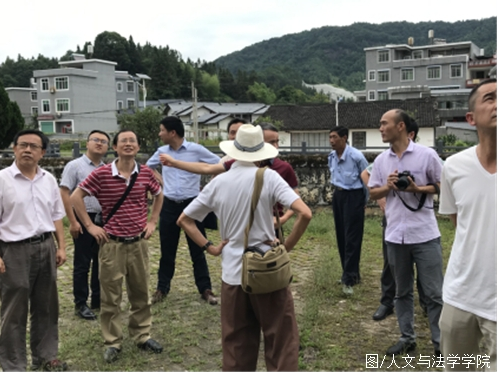
Visit the ancient dwellings in choutian village
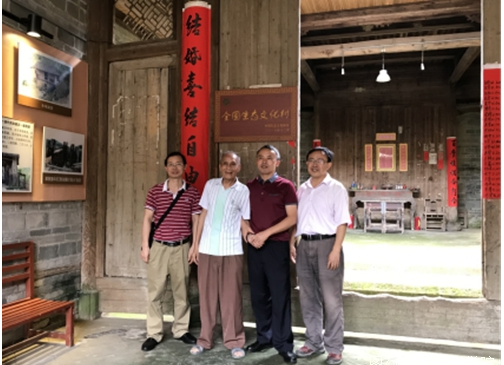
Professor wang took a group photo with leaders of forestry department of jiangxi province and old teachers from zhoutian village
In the afternoon of the week, professor wang and the leaders of the forestry department of jiangxi province visited luofuzhang, fuzhong village, xiangshan town, tongwu county, and visited the old site of luofuzhang conference. On February 3, 1929, MAO zedong presided over a meeting of the front committee of the red fourth army of the communist partyof China (CPC), which was a meeting with an important turning pointin the most difficult period of the red fourth army and was of greathistorical significance to the development and growth of the PLA.
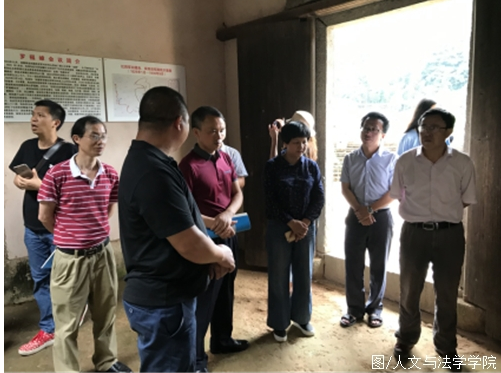
Wang visited the site of the luofuzhang conference
After leaving luofuzhang, the research team and their team came to congkeng village, xiangshan township. The village is rich in forest resourcesand ecological diversity, which is an important supporting point of ecological barrier in the hilly region of south jiangxi. The research team went into the village, visited the local villagers and discussedwith the leaders of the village committee. It is believed that thevillage has a good ecological environment and cultural heritage, soit should make full use of local resources and implement sustainable development in the future development.
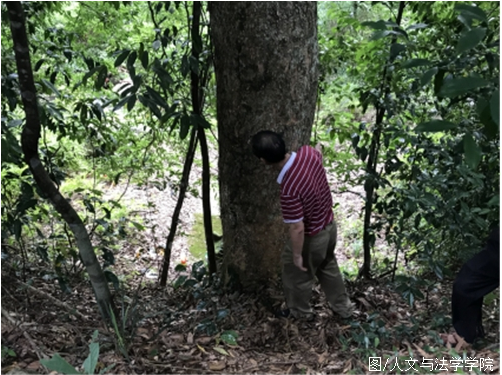
Professor wang is investigating the resources of ancient and famous trees in congkeng village
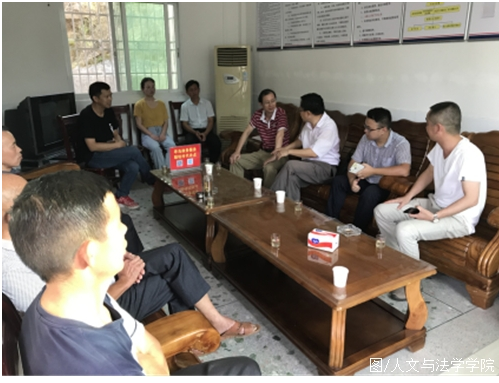
Professorwang had a discussion with village cadres at the village committee ofcongkeng village
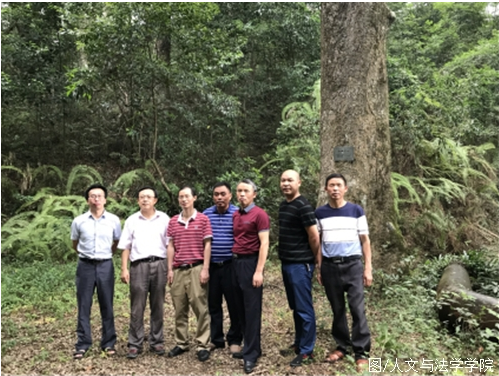
Professor wang took a group photo with jiangxi provincial forestry department leaders and xiangshan township cadres in congkeng village
On the morning of the 23rd, the research team came to the memorial hall of "searching for wu investigation" located in the county seat of xunwu county. Find wu survey is in May, 1930, MAO zedong made of xunwu county in jiangxi province rural economic survey, when the communist party of China has established the revolutionary base in jiangxi and fujian border, in order to realize the economy of rural areas and small cities in China, to carry out the agrarian revolution,strengthen rural revolutionary base areas, MAO zedong from set out actually, using of marxist class analysis method, made the investigation. The museum mainly has the former residence of comrade MAO zedong, xunwu investigation exhibition room, the red army hospital, the former site of the fourth red army cadres meeting and other scenic spots. It retains the simple houses where the revolutionary martyrs once lived, with the traces of MAO zedong, zhuDE, gu bai and other revolutionaries of the older generation who fought. It is one of the bases for the establishment of the revolutionary red regime in China.Through field visits to ancient villages and red revolutionary sites, the research team had a further understanding of the local county conditions. This research activityhas been coordinated and supported by jiangxi provincial forestry department leaders at all levels, and has received good research results.
Photography:wangqinglin \ liu anhao Athour:liuanhao From : college of humanities and law


